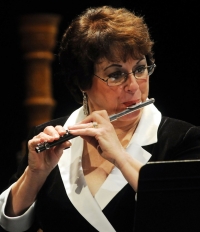Flute Sheet Music
 "The only thing I ever really wanted was a Strat .. I started playing guitar after seeing Jimi Hendrix on TV the day he died...then I got Deep Purples' Fireball album which was also a big influence .. I have a collection of more than 200 of them that includes Strats from every year since March 1954 - the first month the Strat was made" Yngwie Malmsteen
"The only thing I ever really wanted was a Strat .. I started playing guitar after seeing Jimi Hendrix on TV the day he died...then I got Deep Purples' Fireball album which was also a big influence .. I have a collection of more than 200 of them that includes Strats from every year since March 1954 - the first month the Strat was made" Yngwie Malmsteen
Mozart

Wolfgang Amadeus Mozart, full name Johann Chrysostom Wolfgang Amadeus Mozart (27 January 1756 â 5 December 1791) was a prolific and influential composer of the Classical era. His over 600 compositions include works widely acknowledged as pinnacles of symphonic, concertante, chamber, piano, operatic, and choral music. Mozart is among the most enduringly popular of classical composers, and many of his works are part of the standard concert repertoire.
Mozart's music, like Haydn's, stands as an archetypal example of the Classical style. His works spanned the period during which that style transformed from one exemplified by the style galant to one that began to incorporate some of the contrapuntal complexities of the late Baroque, complexities against which the galant style had been a reaction. Mozart's own stylistic development closely paralleled the development of the classical style as a whole. In addition, he was a versatile composer and wrote in almost every major genre, including symphony, opera, the solo concerto, chamber music including string quartet and string quintet, and the piano sonata. While none of these genres were new, the piano concerto was almost single-handedly developed and popularized by Mozart. He also wrote a great deal of religious music, including masses; and he composed many dances, divertimenti, serenades, and other forms of light entertainment.
The central traits of the classical style can be identified in Mozart's music. Clarity, balance, and transparency are hallmarks of his work.
Mozart's music, like Haydn's, stands as an archetypal example of the Classical style. His works spanned the period during which that style transformed from one exemplified by the style galant to one that began to incorporate some of the contrapuntal complexities of the late Baroque, complexities against which the galant style had been a reaction. Mozart's own stylistic development closely paralleled the development of the classical style as a whole. In addition, he was a versatile composer and wrote in almost every major genre, including symphony, opera, the solo concerto, chamber music including string quartet and string quintet, and the piano sonata. While none of these genres were new, the piano concerto was almost single-handedly developed and popularized by Mozart. He also wrote a great deal of religious music, including masses; and he composed many dances, divertimenti, serenades, and other forms of light entertainment.
The central traits of the classical style can be identified in Mozart's music. Clarity, balance, and transparency are hallmarks of his work.
Mago de Oz

Mägo de Oz (Spanish for Wizard of Oz, with a metal umlaut) are a Spanish folk metal band from Begoña, Madrid formed in mid-1988 by drummer Txus di Fellatio. The band became well known for the strong Celtic feel to their music strengthened through their consistent usage of a violinist and flautist. The name for the band was chosen, according to founding member Txus, because "life is a yellow brick road, on which we walk in the company of others searching for our dreams." On the 26th of October, 2018, the band played a special concert to celebrate their 30th anniversary, playing with a symphony orchestra at the WiZink Center in Madrid.
Fool's Garden
Fools Garden is a German band formed in 1991 in the city of Pforzheim. The founders of the group and the only permanent members are vocalist Peter Freudenthaler and guitarist Volker Hinkel.
Carl Reinecke
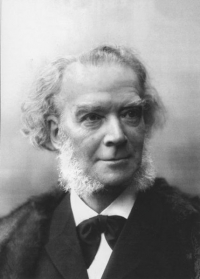
Carl Heinrich Carsten Reinecke (June 23, 1824 – March 10, 1910) was a German composer, conductor, and pianist.
Reinecke is best known for his flute sonata "Undine", but he is also remembered as one of the most influential and versatile musicians of his time. He served as a teacher for 35 years, until 1902. His students included Edvard Grieg, Basil Harwood, Christian Sinding, Leoš Janáček, Isaac Albéniz, Johan Svendsen, Richard Franck, Felix Weingartner, Max Bruch, and Felix Fox among many others.
Reinecke is best known for his flute sonata "Undine", but he is also remembered as one of the most influential and versatile musicians of his time. He served as a teacher for 35 years, until 1902. His students included Edvard Grieg, Basil Harwood, Christian Sinding, Leoš Janáček, Isaac Albéniz, Johan Svendsen, Richard Franck, Felix Weingartner, Max Bruch, and Felix Fox among many others.
Kaj Genell

Vittorio Monti

Vittorio Monti (6 January 1868 – 20 June 1922) was an Italian composer, violinist, and conductor. Monti was born in Naples where he studied violin and composition at the Conservatorio di San Pietro a Majella. Around 1900 he got an assignment as the conductor for the Lamoureux Orchestra in Paris, where he wrote several ballets and operettas, for example Noël de Pierrot.
His only famous work is his Csárdás, written around 1904 and played by almost every gypsy orchestra.
His only famous work is his Csárdás, written around 1904 and played by almost every gypsy orchestra.
Julian Arguelles
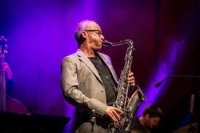
Julian Argüelles is an English jazz saxophonist. Coming to prominence in the 1980s and '90s with the ensemble Loose Tubes, Argüelles has worked extensively as a solo performer and with American and European musicians.
Ennio Morricone
Ennio Morricone, OMRI (born November 10, 1928), is an Italian composer and conductor. He has composed and arranged scores for more than 500 film and television productions. Morricone is considered as one of the most influential film composers since the late 1950s. He is well-known for his long-term collaborations with international acclaimed directors such as Sergio Leone, Brian De Palma, Barry Levinson, and Giuseppe Tornatore.
He wrote the characteristic film scores of Leone's Spaghetti Westerns A Fistful of Dollars (1964), For a Few Dollars More (1965), The Good, the Bad and the Ugly (1966), Once Upon a Time in the West (1968), The Great Silence (1968), and My Name Is Nobody (1973). In the 80s, Morricone composed the scores for John Carpenter's horror movie The Thing (1982), Leone's Once Upon a Time in America (1984), Roland Joffé's The Mission (1986), Brian De Palma's The Untouchables (1987) and Giuseppe Tornatore's Cinema Paradiso (1988).
His more recent compositions include the scores for Oliver Stone's U Turn (1997), Tornatore's The Legend of 1900 (1998) and Malèna (2000), Mission to Mars (2000) by Brian De Palma, Fateless (2005), and Baaria - La porta del vento (2009). Ennio Morricone has won two Grammy Awards, two Golden Globes and five Anthony Asquith Awards for Film Music by BAFTA in 1979–1992. He has been nominated for five Academy Awards for Best Music, Original Score in 1979–2001. Morricone received the Honorary Academy Award in 2007 "for his magnificent and multifaceted contributions to the art of film music". He was the second composer to receive this award after its introduction in 1928.
He wrote the characteristic film scores of Leone's Spaghetti Westerns A Fistful of Dollars (1964), For a Few Dollars More (1965), The Good, the Bad and the Ugly (1966), Once Upon a Time in the West (1968), The Great Silence (1968), and My Name Is Nobody (1973). In the 80s, Morricone composed the scores for John Carpenter's horror movie The Thing (1982), Leone's Once Upon a Time in America (1984), Roland Joffé's The Mission (1986), Brian De Palma's The Untouchables (1987) and Giuseppe Tornatore's Cinema Paradiso (1988).
His more recent compositions include the scores for Oliver Stone's U Turn (1997), Tornatore's The Legend of 1900 (1998) and Malèna (2000), Mission to Mars (2000) by Brian De Palma, Fateless (2005), and Baaria - La porta del vento (2009). Ennio Morricone has won two Grammy Awards, two Golden Globes and five Anthony Asquith Awards for Film Music by BAFTA in 1979–1992. He has been nominated for five Academy Awards for Best Music, Original Score in 1979–2001. Morricone received the Honorary Academy Award in 2007 "for his magnificent and multifaceted contributions to the art of film music". He was the second composer to receive this award after its introduction in 1928.
Milko Bizjak
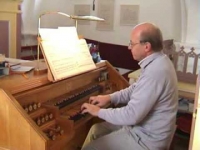
Milko Bizjak Composer Born: November 1, 1959 (age 62 years) Record label: Edition Bizjak Albums: Organ Concert Tour 1991 Songs Toccata "Dorian" Organ Concert Tour 1991 · 1991 Fantasia et Fuga Organ Concert Tour 1991 · 1991
Fuga D-Minor Organ Concert Tour 1991 · 1991.
Fuga D-Minor Organ Concert Tour 1991 · 1991.
Chiquinha Gonzaga
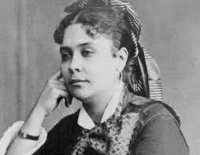
Francisca Edwiges Neves Gonzaga, better known as Chiquinha Gonzaga (Portuguese pronunciation: ; October 17, 1847 – February 28, 1935) was a Brazilian composer, pianist and the first woman conductor in Brazil.[Chiquinha Gonzaga was the first pianist of "choro" and author of the first carnival march, "Ó Abre Alas" (1899). Her plays and operettas, such as Forrobodó and Jurití, were a great success with the public because they used elements of Brazilian popular culture of the time.
Mariano Obiols
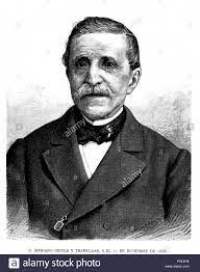
Marià Obiols, also known as Mariano Obiols, was a Catalan composer, conductor, and professor of music. He served as the music director of the Gran Teatre del Liceu in Barcelona from its founding in 1847 until his death.
The Daydream

The Daydream Club is an English multi-genre music duo formed in 2010 by husband and wife Adam and Paula Pickering. They say their one goal is to make music they're proud of. Their manager claims they have built a strong, loyal fan base without traditional forms of financing, promotion or backing. To date all material has been self-released through their own label, Poco Poco Records. They have featured on BBC, Burberry, Acoustic Magazine, Rolling Stone, Level Films, Channel 4, the Hype Machine's most influential music blogs, and Spotify, with over 100 million streams.
Toshio Hosokawa
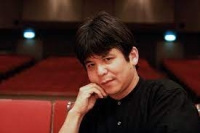
Toshio Hosokawa is a Japanese composer of contemporary classical music. He studied in Germany but returned to Japan, finding a personal style inspired by classical Japanese music and culture. He has composed operas, the oratorio Voiceless Voice in Hiroshima, and instrumental music.
The Legend of Zelda

The Legend of Zelda (Zeruda no Densetsu) is a high fantasy action-adventure video game series created by game designer Shigeru Miyamoto and developed and published by Nintendo. The gameplay consists of a mixture of action, adventure, puzzle solving, role-playing and occasional platforming, stealth and racing elements. The series centers on Link, the main playable character and protagonist. Link is often given the task of rescuing Princess Zelda and the most common setting of the series, Hyrule, from Ganon who is the primary antagonist of the series. However, other settings and antagonists have appeared throughout the games, with Vaati having recently become the series' secondary antagonist. The story commonly involves a relic known as the Triforce, a set of three golden triangles of omnipotence. The protagonist in each game is not always the same iteration of Link, although the same character sometimes appears across multiple games.
The Legend of Zelda series has sold over 52 million copies since the release of the first game, The Legend of Zelda, and continues to be successful worldwide. The series consists of fourteen official games on all of Nintendo's major consoles, as well as several spin-offs. An animated series based on the games aired in 1989, and individual manga adaptions which are officially endorsed and commissioned by Nintendo have been produced in Japan since 1997.
The Legend of Zelda series has sold over 52 million copies since the release of the first game, The Legend of Zelda, and continues to be successful worldwide. The series consists of fourteen official games on all of Nintendo's major consoles, as well as several spin-offs. An animated series based on the games aired in 1989, and individual manga adaptions which are officially endorsed and commissioned by Nintendo have been produced in Japan since 1997.
Traditional

Jacques Ibert
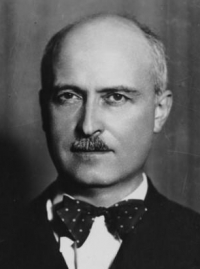
Jacques François Antoine Marie Ibert (15 August 1890 – 5 February 1962) was a French composer of classical music. Having studied music from an early age, he studied at the Paris Conservatoire and won its top prize, the Prix de Rome at his first attempt, despite studies interrupted by his service in World War I.
Robert Schumann
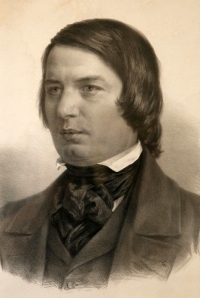
Robert Schumann (German: ; 8 June 1810 – 29 July 1856) was a German composer, pianist, and influential music critic. He is widely regarded as one of the greatest composers of the Romantic era. Schumann left the study of law, intending to pursue a career as a virtuoso pianist. His teacher, Friedrich Wieck, a German pianist, had assured him that he could become the finest pianist in Europe, but a hand injury ended this dream. Schumann then focused his musical energies on composing.
Howard Shore

Howard Leslie Shore (born October 18, 1946) is a Canadian composer, notable for his film scores. He has composed the scores for over 40 films, most notably the scores for The Lord of the Rings film trilogy, for which he won three Academy Awards. He is also a consistent collaborator with director David Cronenberg, having scored all but one of his films since 1979. Shore has also worked with Martin Scorsese, Jonathan Demme, David Fincher and many other filmakers.
He has also composed a few concert works including one opera, The Fly, based on the plot (though not his score) of Cronenberg's 1986 film premiered at the Théâtre du Châtelet in Paris on 2 July 2008., a short piece Fanfare for the Wanamaker Organ and the Philadelphia Orchestra, and a short overture for the Swiss 21st Century Symphony Orchestra.
Shore is a three-time winner of the Academy Award, and has also won two Golden Globe Awards and four Grammy Awards. He is the uncle of film composer Ryan Shore.
He has also composed a few concert works including one opera, The Fly, based on the plot (though not his score) of Cronenberg's 1986 film premiered at the Théâtre du Châtelet in Paris on 2 July 2008., a short piece Fanfare for the Wanamaker Organ and the Philadelphia Orchestra, and a short overture for the Swiss 21st Century Symphony Orchestra.
Shore is a three-time winner of the Academy Award, and has also won two Golden Globe Awards and four Grammy Awards. He is the uncle of film composer Ryan Shore.
Laurent Coulomb
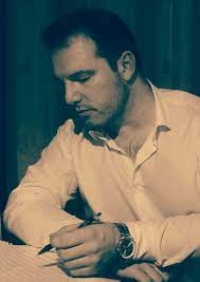
Laurent Coulomb was born in Montpellier. He started learning music theory and taking piano lessons within private tuition. In parallel, he pursued prestigious higher studies in Human Science at the Institut d’Etudes Politiques in Strasbourg, passed a Master degree and then obtained the highest qualification rank as a Professor of History. These led him to obtain a position in teaching and research near Nice.
Jordan Nobles

Jordan Nobles (born December 11, 1969) is a Canadian composer who specializes in creating spatial music and open instrumentation compositions. His music is performed worldwide and has won several international and national awards including the 2017 Juno Award for Classical Composition of the Year.
Joseph Schwantner
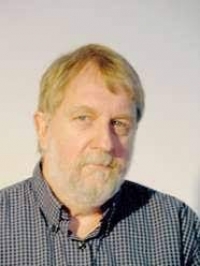
Joseph Clyde Schwantner is a Pulitzer Prize-winning American composer, educator and a member of the American Academy of Arts and Letters since 2002. He was awarded the 1970 Charles Ives Prize. Schwantner is prolific, with many works to his credit.
Shostakovich

Dmitri Dmitriyevich Shostakovich (25 September 1906 – 9 August 1975) was a Soviet Russian composer and one of the most celebrated composers of the 20th century.
Shostakovich achieved fame in the Soviet Union under the patronage of Leon Trotsky's chief of staff Mikhail Tukhachevsky, but later had a complex and difficult relationship with the Stalinist bureaucracy. In 1936, the government, most probably under orders from Stalin, harshly criticized his opera Lady Macbeth of the Mtsensk District, causing him to withdraw the Fourth Symphony during its rehearsal stages. Shostakovich's music was officially denounced twice, in 1936 and 1948, and was periodically banned. Nevertheless, he also received accolades and state awards and served in the Supreme Soviet of the RSFSR. Despite the official controversy, his works were popular and well received.
Shostakovich achieved fame in the Soviet Union under the patronage of Leon Trotsky's chief of staff Mikhail Tukhachevsky, but later had a complex and difficult relationship with the Stalinist bureaucracy. In 1936, the government, most probably under orders from Stalin, harshly criticized his opera Lady Macbeth of the Mtsensk District, causing him to withdraw the Fourth Symphony during its rehearsal stages. Shostakovich's music was officially denounced twice, in 1936 and 1948, and was periodically banned. Nevertheless, he also received accolades and state awards and served in the Supreme Soviet of the RSFSR. Despite the official controversy, his works were popular and well received.
W.A. Mozart

Wolfgang Amadeus Mozart (German: , full baptismal name Johannes Chrysostomus Wolfgangus Theophilus Mozart (27 January 1756 – 5 December 1791), was a prolific and influential composer of the Classical era. He composed over 600 works, many acknowledged as pinnacles of symphonic, concertante, chamber, piano, operatic, and choral music. He is among the most enduringly popular of classical composers.
Mozart showed prodigious ability from his earliest childhood in Salzburg. Already competent on keyboard and violin, he composed from the age of five and performed before European royalty; at 17 he was engaged as a court musician in Salzburg, but grew restless and traveled in search of a better position, always composing abundantly. While visiting Vienna in 1781, he was dismissed from his Salzburg position. He chose to stay in the capital, where he achieved fame but little financial security. During his final years in Vienna, he composed many of his best-known symphonies, concertos, and operas, and the Requiem. The circumstances of his early death have been much mythologized. He was survived by his wife Constanze and two sons.
Mozart learned voraciously from others, and developed a brilliance and maturity of style that encompassed the light and graceful along with the dark and passionate—the whole informed by a vision of humanity "redeemed through art, forgiven, and reconciled with nature and the absolute." His influence on subsequent Western art music is profound. Beethoven wrote his own early compositions in the shadow of Mozart, of whom Joseph Haydn wrote that "posterity will not see such a talent again in 100 years."
Mozart showed prodigious ability from his earliest childhood in Salzburg. Already competent on keyboard and violin, he composed from the age of five and performed before European royalty; at 17 he was engaged as a court musician in Salzburg, but grew restless and traveled in search of a better position, always composing abundantly. While visiting Vienna in 1781, he was dismissed from his Salzburg position. He chose to stay in the capital, where he achieved fame but little financial security. During his final years in Vienna, he composed many of his best-known symphonies, concertos, and operas, and the Requiem. The circumstances of his early death have been much mythologized. He was survived by his wife Constanze and two sons.
Mozart learned voraciously from others, and developed a brilliance and maturity of style that encompassed the light and graceful along with the dark and passionate—the whole informed by a vision of humanity "redeemed through art, forgiven, and reconciled with nature and the absolute." His influence on subsequent Western art music is profound. Beethoven wrote his own early compositions in the shadow of Mozart, of whom Joseph Haydn wrote that "posterity will not see such a talent again in 100 years."
Tom Horn
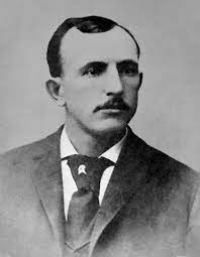
Tom Horn Musical artist Songs Soul Scheme Overload · 2017 The Last Day Guest Room · 2014 Berlheart Overload · 2017
Bach

Johann Sebastian Bach (31 March 1685 – 28 July 1750) was a German composer and organist whose sacred and secular works for choir, orchestra, and solo instruments drew together the strands of the Baroque period and brought it to its ultimate maturity. Although he introduced no new forms, he enriched the prevailing German style with a robust contrapuntal technique, an unrivalled control of harmonic and motivic organisation in composition for diverse musical forces, and the adaptation of rhythms and textures from abroad, particularly Italy and France.
Revered for their intellectual depth and technical and artistic beauty, Bach's works include the Brandenburg concertos; the Goldberg Variations; the English Suites, French Suites, Partitas, and Well-Tempered Clavier; the Mass in B Minor; the St. Matthew Passion; the St. John Passion; The Musical Offering; The Art of Fugue; the Sonatas and Partitas for violin solo; the Cello Suites; more than 200 surviving cantatas; and a similar number of organ works, including the celebrated Toccata and Fugue in D Minor.
While Bach's fame as an organist was great during his lifetime, he was not particularly well-known as a composer. His adherence to Baroque forms and contrapuntal style was considered "old-fashioned" by his contemporaries, especially late in his career when the musical fashion tended towards Rococo and later Classical styles. A revival of interest and performances of his music began early in the 19th century, and he is now widely considered to be one of the greatest composers in the Western tradition.
Revered for their intellectual depth and technical and artistic beauty, Bach's works include the Brandenburg concertos; the Goldberg Variations; the English Suites, French Suites, Partitas, and Well-Tempered Clavier; the Mass in B Minor; the St. Matthew Passion; the St. John Passion; The Musical Offering; The Art of Fugue; the Sonatas and Partitas for violin solo; the Cello Suites; more than 200 surviving cantatas; and a similar number of organ works, including the celebrated Toccata and Fugue in D Minor.
While Bach's fame as an organist was great during his lifetime, he was not particularly well-known as a composer. His adherence to Baroque forms and contrapuntal style was considered "old-fashioned" by his contemporaries, especially late in his career when the musical fashion tended towards Rococo and later Classical styles. A revival of interest and performances of his music began early in the 19th century, and he is now widely considered to be one of the greatest composers in the Western tradition.
Michio Miyagi
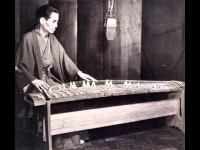
Michio Miyagi was a Japanese musician, famous for his koto playing. He was born in Kobe. He lost his sight in 1902, when he was 8 years old, and started his study in koto under the guidance of Nakajima Kengyo II, dedicating the rest of his life to the instrument.
Wicked

Wicked is a musical with songs and lyrics by Stephen Schwartz and a book by Winnie Holzman. The story is based on the best-selling novel Wicked: The Life and Times of the Wicked Witch of the West by Gregory Maguire, a parallel novel of L. Frank Baum's classic story The Wonderful Wizard of Oz from the perspective of the witches of the Land of Oz.
Wicked tells the story of Elphaba, the future Wicked Witch of the West and her relationship with Glinda, the Good Witch of the North. Their friendship struggles through their opposing personalities and viewpoints, rivalry over the same love-interest, their reactions to the Wizard's corrupt government, and, ultimately, Elphaba's public fall from grace. The plot is set mostly before Dorothy's arrival from Kansas, and includes several references to well-known scenes and dialogue in the 1939 film The Wizard of Oz.
The musical debuted on Broadway on October 30, 2003. It is produced by Universal Pictures and directed by Joe Mantello, with musical staging by Wayne Cilento. Its original stars were Idina Menzel as Elphaba, Kristin Chenoweth as Glinda, and Joel Grey as the Wizard. Although the production received mixed reviews and was panned by The New York Times, it has proved to be a favorite among patrons. The Broadway production's success spawned productions in Chicago, Los Angeles, London's West End, Tokyo, Melbourne, and Stuttgart, along with two North American tours that have visited over 30 cities in Canada and the United States.
The score of Wicked is heavily thematic, bearing in some senses more resemblance to a film score than a musical's score. While many musicals' scores develop new motifs and melodies for each song with little overlap, Schwartz integrated a handful of leitmotifs throughout the production. A cast recording of the original Broadway production was released on December 16, 2003, by Universal Music. All of the songs featured on stage are present on the recording with the exception of "The Wizard And I (Reprise)" and "The Wicked Witch of the East". The short reprise of "No One Mourns The Wicked" that opens Act II is attached to the beginning of "Thank Goodness". The music was arranged by Stephen Oremus, who was also the conductor and director, and James Lynn Abbott, with orchestrations by William David Brohn. The recording received the Grammy Award for Best Musical Show Album in 2005 and was certified platinum by the RIAA on November 30, 2006.
Wicked tells the story of Elphaba, the future Wicked Witch of the West and her relationship with Glinda, the Good Witch of the North. Their friendship struggles through their opposing personalities and viewpoints, rivalry over the same love-interest, their reactions to the Wizard's corrupt government, and, ultimately, Elphaba's public fall from grace. The plot is set mostly before Dorothy's arrival from Kansas, and includes several references to well-known scenes and dialogue in the 1939 film The Wizard of Oz.
The musical debuted on Broadway on October 30, 2003. It is produced by Universal Pictures and directed by Joe Mantello, with musical staging by Wayne Cilento. Its original stars were Idina Menzel as Elphaba, Kristin Chenoweth as Glinda, and Joel Grey as the Wizard. Although the production received mixed reviews and was panned by The New York Times, it has proved to be a favorite among patrons. The Broadway production's success spawned productions in Chicago, Los Angeles, London's West End, Tokyo, Melbourne, and Stuttgart, along with two North American tours that have visited over 30 cities in Canada and the United States.
The score of Wicked is heavily thematic, bearing in some senses more resemblance to a film score than a musical's score. While many musicals' scores develop new motifs and melodies for each song with little overlap, Schwartz integrated a handful of leitmotifs throughout the production. A cast recording of the original Broadway production was released on December 16, 2003, by Universal Music. All of the songs featured on stage are present on the recording with the exception of "The Wizard And I (Reprise)" and "The Wicked Witch of the East". The short reprise of "No One Mourns The Wicked" that opens Act II is attached to the beginning of "Thank Goodness". The music was arranged by Stephen Oremus, who was also the conductor and director, and James Lynn Abbott, with orchestrations by William David Brohn. The recording received the Grammy Award for Best Musical Show Album in 2005 and was certified platinum by the RIAA on November 30, 2006.
Dang Khanh
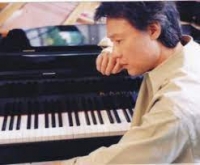
Dang Khanh Musical artist Albums: Làm Sao Tôi Biết, Dream of Love, Thuong Ve Mien Trung Songs La Thu Do Thi
Thuong Ve Mien Trung · 2018 Cánh Hoa Xưa Làm Sao Tôi Biết · 2007 Thuong Ve Mien Trung Thuong Ve Mien Trung · 2018
Thuong Ve Mien Trung · 2018 Cánh Hoa Xưa Làm Sao Tôi Biết · 2007 Thuong Ve Mien Trung Thuong Ve Mien Trung · 2018
Jules Massenet
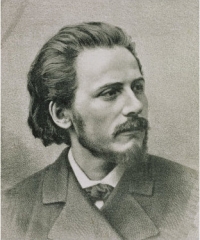
Jules (Émile Frédéric) Massenet (May 12, 1842 – August 13, 1912) was a French composer best known for his operas. His compositions were very popular in the late 19th and early 20th centuries, and he ranks as one of the greatest melodists of his era. Soon after his death, Massenet's style went out of fashion, and many of his operas fell into almost total oblivion. Apart from Manon and Werther, his works were rarely performed. However, since the mid-1970s, many operas of his such as Thaïs and Esclarmonde have undergone periodic revivals.
Carlos Guastavino
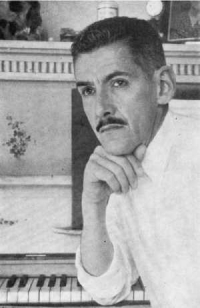
Carlos Guastavino was one of the foremost Argentine composers of the 20th century. His production amounted to over 500 works, most of them songs for piano and voice, many still unpublished. His style was quite conservative, always tonal and lusciously romanti
Brahms

Johannes Brahms (May 7, 1833 â April 3, 1897) was a German composer of the Romantic period. He was born in Hamburg and in his later years he settled in Vienna, Austria.
Brahms maintained a Classical sense of form and order in his works â in contrast to the opulence of the music of many of his contemporaries. Thus many admirers (though not necessarily Brahms himself) saw him as the champion of traditional forms and "pure music," as opposed to the New German embrace of program music.
Brahms venerated Beethoven: in the composer's home, a marble bust of Beethoven looked down on the spot where he composed, and some passages in his works are reminiscent of Beethoven's style. The main theme of the finale of Brahms's First Symphony is reminiscent of the main theme of the finale of Beethoven's Ninth, and when this resemblance was pointed out to Brahms he replied that any ass â jeder Esel â could see that.
Ein deutsches Requiem was partially inspired by his mother's death in 1865, but also incorporates material from a Symphony he started in 1854, but abandoned following Schumann's suicide attempt. He once wrote that the Requiem "belonged to Schumann". The first movement of this abandoned Symphony was re-worked as the first movement of the First Piano Concerto.
Brahms also loved the Classical composers Mozart and Haydn. He collected first editions and autographs of their works, and edited performing editions. He also studied the music of pre-classical composers, including Giovanni Gabrieli, Johann Adolph Hasse, Heinrich Schütz and especially Johann Sebastian Bach. His friends included leading musicologists, and with Friedrich Chrysander he edited an edition of the works of François Couperin. He looked to older music for inspiration in the arts of strict counterpoint; the themes of some of his works are modelled on Baroque sources, such as Bach's The Art of Fugue in the fugal finale of Cello Sonata No. 1, or the same composer's Cantata No. 150 in the passacaglia theme of the Fourth Symphony's finale.
Brahms maintained a Classical sense of form and order in his works â in contrast to the opulence of the music of many of his contemporaries. Thus many admirers (though not necessarily Brahms himself) saw him as the champion of traditional forms and "pure music," as opposed to the New German embrace of program music.
Brahms venerated Beethoven: in the composer's home, a marble bust of Beethoven looked down on the spot where he composed, and some passages in his works are reminiscent of Beethoven's style. The main theme of the finale of Brahms's First Symphony is reminiscent of the main theme of the finale of Beethoven's Ninth, and when this resemblance was pointed out to Brahms he replied that any ass â jeder Esel â could see that.
Ein deutsches Requiem was partially inspired by his mother's death in 1865, but also incorporates material from a Symphony he started in 1854, but abandoned following Schumann's suicide attempt. He once wrote that the Requiem "belonged to Schumann". The first movement of this abandoned Symphony was re-worked as the first movement of the First Piano Concerto.
Brahms also loved the Classical composers Mozart and Haydn. He collected first editions and autographs of their works, and edited performing editions. He also studied the music of pre-classical composers, including Giovanni Gabrieli, Johann Adolph Hasse, Heinrich Schütz and especially Johann Sebastian Bach. His friends included leading musicologists, and with Friedrich Chrysander he edited an edition of the works of François Couperin. He looked to older music for inspiration in the arts of strict counterpoint; the themes of some of his works are modelled on Baroque sources, such as Bach's The Art of Fugue in the fugal finale of Cello Sonata No. 1, or the same composer's Cantata No. 150 in the passacaglia theme of the Fourth Symphony's finale.
Coco Nelegatti
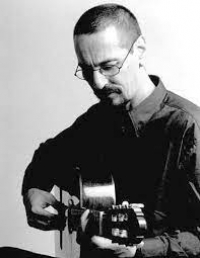
Geboren am 24 Dezember 1959 in Córdoba, Argentinien. Lebt seit 1986 in BerlinAls Sechsjähriger begann er sein Studium der Gitarre in Córdoba mit dem Gitarrist und Komponist Luis Pérez Pruneda, danach studierte in Tucumán mit dem Gitarrist José María Montini.Ab 1963 Auftritte auf zahlreichen lateinamerikanischen Folklore-Festivals wie "Festival de Música de Baradero", "Festival des Cosquín" und "Festival de Tango de La Falda".1979 - 1982 arrangiert, komponiert und spielt Klavier in "Ritual" zusammen mit dem folklorist Luis "Lucho" Hoyos und Federico Falcón in Argentinien.
Einojuhani Rautavaara
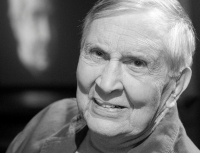
Einojuhani Rautavaara was a Finnish composer of classical music. Among the most notable Finnish composers since Jean Sibelius, Rautavaara wrote a great number of works spanning various styles. These include eight symphonies, nine operas and twelve concertos, as well as numerous vocal and chamber works.
Fahrenheit
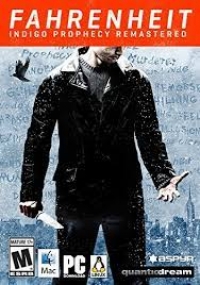
Fahrenheit is an action-adventure game developed by Quantic Dream and published by Atari for Microsoft Windows, Xbox, and PlayStation 2 in September 2005. The plot follows Lucas Kane, a man who commits murder while supernaturally possessed, and two police detectives investigating the case.
Gordon Goodwin

Gordon L. Goodwin (born 1954) is an American studio pianist, saxophonist, composer, arranger and conductor. He now lives in Southern California with his wife Lisa, daughter Madison and two sons, Trevor and Garrison.
Jean-Baptiste Lully
Jean-Baptiste Lully (UK: /ˈlʊli/, US: /luːˈliː/; French: ; born Giovanni Battista Lulli, Italian: ; 28 November 1632 – 22 March 1687) was an Italian-born French composer, instrumentalist, and dancer who is considered a master of the French Baroque music style. Best known for his operas, he spent most of his life working in the court of Louis XIV of France and became a French subject in 1661.
José Galvão
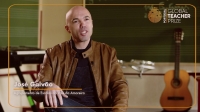
José Galvão Musical artist Songs Natal na Minha Escola Teatro Musical - A Magia do Natal · 2021 Hino Eco-Escola
Natal em Portugal - Raio de Sol Teatro Musical - A Magia do Natal ·
Natal em Portugal - Raio de Sol Teatro Musical - A Magia do Natal ·
Leo Brouwer
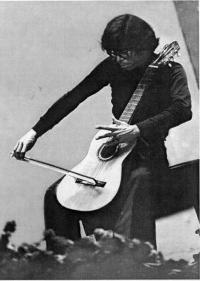
Juan Leovigildo Brouwer Mezquida (born March 1, 1939) in Havana, is a Cuban composer, conductor and guitarist .
As a child, Brouwer received his initial stimulus from his father, a physician, who was an aficionado of Villa-Lobos, Tárrega and Granados. He initiated his son encouraging him to play these composers' works, mostly by ear.
Young Brouwer received his first formal guitar instruction from the noted Cuban guitarist and pedagogue Isaac Nicola, in turn a disciple of Emilio Pujol. Afterwards, Brouwer went to the United States to study music at the Hartt College of Music of the University of Hartford, and later at the Juilliard School, where he studied under Vincent Persichetti and took composition classes with Stefan Wolpe.
Brouwer's early works show the influence of Cuban folk music, but during the 1960s and 70s, he became interested in the music of modernist composers such as Luigi Nono and Iannis Xenakis, using indeterminacy in works such as Sonograma I. Other works from this period include the guitar pieces Canticum (1968), La espiral eterna (1971), Parábola (1973) and Tarantos (1974). More recently, Brouwer's works have started leaning towards tonality and modality. The solo guitar works El Decamerón Negro (1981) the Sonata (1990; for Julian Bream) and Paisaje cubano con campanas (1986) exemplify this tendency.
Among his works are a large number of solo guitar pieces, several guitar concertos and over forty film scores. Leo Brouwer is involved in the "Concurso y Festival Internacional de Guitarra de la Habana" (International Guitar Festival of the Havana). He travels often to attend guitar festivals throughout the world, and especially to other Latin American countries.
As a child, Brouwer received his initial stimulus from his father, a physician, who was an aficionado of Villa-Lobos, Tárrega and Granados. He initiated his son encouraging him to play these composers' works, mostly by ear.
Young Brouwer received his first formal guitar instruction from the noted Cuban guitarist and pedagogue Isaac Nicola, in turn a disciple of Emilio Pujol. Afterwards, Brouwer went to the United States to study music at the Hartt College of Music of the University of Hartford, and later at the Juilliard School, where he studied under Vincent Persichetti and took composition classes with Stefan Wolpe.
Brouwer's early works show the influence of Cuban folk music, but during the 1960s and 70s, he became interested in the music of modernist composers such as Luigi Nono and Iannis Xenakis, using indeterminacy in works such as Sonograma I. Other works from this period include the guitar pieces Canticum (1968), La espiral eterna (1971), Parábola (1973) and Tarantos (1974). More recently, Brouwer's works have started leaning towards tonality and modality. The solo guitar works El Decamerón Negro (1981) the Sonata (1990; for Julian Bream) and Paisaje cubano con campanas (1986) exemplify this tendency.
Among his works are a large number of solo guitar pieces, several guitar concertos and over forty film scores. Leo Brouwer is involved in the "Concurso y Festival Internacional de Guitarra de la Habana" (International Guitar Festival of the Havana). He travels often to attend guitar festivals throughout the world, and especially to other Latin American countries.
Ouran High School Host Club

Ouran High School Host Club (桜蘭高校ホスト部 Ōran Kōkō Hosuto Kurabu?) is a manga series by Bisco Hatori, serialized in Hakusensha's LaLa magazine since August 5, 2003. The series follows Haruhi Fujioka, a scholarship student at Ouran High School, and the other members of the popular host club. The romantic comedy focuses on the relationships within and without the Club and satirizes the clichés and stereotypes that endure in shōjo. There are also occasional moments where the characters break the fourth wall. The manga has been adapted into a series of audio dramas, an animated television series directed by Takuya Igarashi and produced by Bones, and a visual novel by Idea Factory.
Klaus Badelt

Klaus Badelt (born 1968) is a German composer, best known for composing film scores.
Badelt was born in Frankfurt, Germany. He started his musical career composing for many successful movies and commercials in his homeland. In 1998, Oscar-winning film composer Hans Zimmer invited Badelt to work at Media Ventures in Santa Monica, his studio co-owned by Jay Rifkin. Since then, Badelt has been working on a number of his own film and television projects such as The Time Machine and K-19: The Widowmaker. He has also collaborated with other Media Ventures composers, such as Harry Gregson-Williams, John Powell, and Zimmer.
While collaborating with Zimmer, Badelt has contributed to the Oscar-nominated scores for The Thin Red Line and The Prince of Egypt, as well as writing music for many well known directors including Ridley Scott, Tony Scott, Terrence Mallick, John Woo, Kathryn Bigelow, Jeffrey Katzenberg, Tom Cruise, Sean Penn, Gore Verbinski, and Steven Spielberg.
Badelt co-produced the score to Hollywood box office hit Gladiator, directed by Ridley Scott, as well as writing portions of the score with singer/composer Lisa Gerrard. Having contributed music to Gladiator, Mission: Impossible 2 and Michael Kamen's score for X-Men, Badelt was involved in the three most successful movies in 2000. Badelt also collaborated with Zimmer on other successful films, such as The Pledge, and 2001 blockbusters Hannibal and Pearl Harbor. One of his more famous - and more popular - scores is the score to the 2003 film Pirates of the Caribbean: The Curse of the Black Pearl.
Among Badelt's most critically celebrated scores are the Chinese fantasy film The Promise and Dreamworks' remake of The Time Machine, the latter which earned him the Discovery of the Year Award at the World Soundtrack Awards 2003.
Badelt was born in Frankfurt, Germany. He started his musical career composing for many successful movies and commercials in his homeland. In 1998, Oscar-winning film composer Hans Zimmer invited Badelt to work at Media Ventures in Santa Monica, his studio co-owned by Jay Rifkin. Since then, Badelt has been working on a number of his own film and television projects such as The Time Machine and K-19: The Widowmaker. He has also collaborated with other Media Ventures composers, such as Harry Gregson-Williams, John Powell, and Zimmer.
While collaborating with Zimmer, Badelt has contributed to the Oscar-nominated scores for The Thin Red Line and The Prince of Egypt, as well as writing music for many well known directors including Ridley Scott, Tony Scott, Terrence Mallick, John Woo, Kathryn Bigelow, Jeffrey Katzenberg, Tom Cruise, Sean Penn, Gore Verbinski, and Steven Spielberg.
Badelt co-produced the score to Hollywood box office hit Gladiator, directed by Ridley Scott, as well as writing portions of the score with singer/composer Lisa Gerrard. Having contributed music to Gladiator, Mission: Impossible 2 and Michael Kamen's score for X-Men, Badelt was involved in the three most successful movies in 2000. Badelt also collaborated with Zimmer on other successful films, such as The Pledge, and 2001 blockbusters Hannibal and Pearl Harbor. One of his more famous - and more popular - scores is the score to the 2003 film Pirates of the Caribbean: The Curse of the Black Pearl.
Among Badelt's most critically celebrated scores are the Chinese fantasy film The Promise and Dreamworks' remake of The Time Machine, the latter which earned him the Discovery of the Year Award at the World Soundtrack Awards 2003.
Fiddler on the Roof
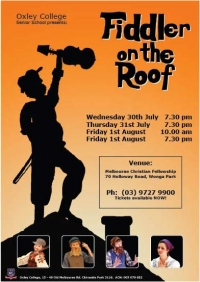
Fiddler on the Roof is a musical with music by Jerry Bock, lyrics by Sheldon Harnick, and book by Joseph Stein, set in csarist Russia in 1905.
Fiddler on the Roof was originally entitled Tevye. It is based on Tevye and his Daughters (or Tevye the Milkman) and other tales by Sholem Aleichem which he wrote in Yiddish and published in 1894. The story centers on Tevye, the father of five daughters, and his attempts to maintain his family and religious traditions while outside influences encroach upon their lives. He must cope with both the strong-willed actions of his three older daughters—each daughter's choice of husband moves progressively further away from established customs—and with the edict of the Tsar that evicts the Jews from their village.
The musical's title stems from a painting by Marc Chagall, one of many surreal paintings he created of Eastern European Jewish life, often including a fiddler. The Fiddler is a metaphor for survival, through tradition and joyfulness, in a life of uncertainty and imbalance.
The original Broadway production of the show, which opened in 1964, was the first musical to surpass the 3,000 performance mark, and it held the record for longest-running Broadway musical for almost 10 years until Grease surpassed its run. The production earned $1,574 for every dollar invested in it.
The show was highly acclaimed and nominated for ten Tony Awards, winning nine, including Best Musical, score, book, direction and choreography. It spawned four Broadway revivals, a successful 1971 film adaptation, and has enjoyed enduring international popularity. It is also a very popular choice for school and community productions.
Fiddler on the Roof was originally entitled Tevye. It is based on Tevye and his Daughters (or Tevye the Milkman) and other tales by Sholem Aleichem which he wrote in Yiddish and published in 1894. The story centers on Tevye, the father of five daughters, and his attempts to maintain his family and religious traditions while outside influences encroach upon their lives. He must cope with both the strong-willed actions of his three older daughters—each daughter's choice of husband moves progressively further away from established customs—and with the edict of the Tsar that evicts the Jews from their village.
The musical's title stems from a painting by Marc Chagall, one of many surreal paintings he created of Eastern European Jewish life, often including a fiddler. The Fiddler is a metaphor for survival, through tradition and joyfulness, in a life of uncertainty and imbalance.
The original Broadway production of the show, which opened in 1964, was the first musical to surpass the 3,000 performance mark, and it held the record for longest-running Broadway musical for almost 10 years until Grease surpassed its run. The production earned $1,574 for every dollar invested in it.
The show was highly acclaimed and nominated for ten Tony Awards, winning nine, including Best Musical, score, book, direction and choreography. It spawned four Broadway revivals, a successful 1971 film adaptation, and has enjoyed enduring international popularity. It is also a very popular choice for school and community productions.
Jamey Abersold
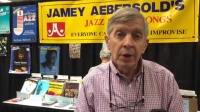
Wilton Jameson "Jamey" Aebersold is an American publisher, educator, and jazz saxophonist. His Play-A-Long series of instructional books and CDs, using the chord-scale system, the first of which was released in 1967, are an internationally renowned resource for jazz education
Ludwig van Beethoven

Ludwig van Beethoven (/ˈlʊdvɪɡ væn ˈbeɪt(h)oʊvən/ (About this soundlisten); German: (About this soundlisten); baptised 17 December 1770 – 26 March 1827) was a German composer and pianist. A crucial figure in the transition between the classical and romantic eras in classical music, he remains one of the most recognized and influential musicians of this period, and is considered to be one of the greatest composers of all time.
Beethoven was born in Bonn, the capital of the Electorate of Cologne, and part of the Holy Roman Empire. He displayed his musical talents at an early age and was vigorously taught by his father Johann van Beethoven, and was later taught by composer and conductor Christian Gottlob Neefe. At age 21, he moved to Vienna and studied composition with Joseph Haydn. Beethoven then gained a reputation as a virtuoso pianist, and was soon courted by Prince Lichnowsky for compositions, which resulted in Opus 1 in 1795.
Beethoven was born in Bonn, the capital of the Electorate of Cologne, and part of the Holy Roman Empire. He displayed his musical talents at an early age and was vigorously taught by his father Johann van Beethoven, and was later taught by composer and conductor Christian Gottlob Neefe. At age 21, he moved to Vienna and studied composition with Joseph Haydn. Beethoven then gained a reputation as a virtuoso pianist, and was soon courted by Prince Lichnowsky for compositions, which resulted in Opus 1 in 1795.
Frank William Erickson
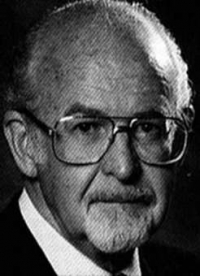
Frank William Erickson (September 1, 1923 – October 21, 1996) was an American composer, conductor, arranger, writer, and trumpet player.The son of Frank O.. Myrtle Erickson, Frank Erickson was born and raised in Spokane, Washington. He began his instrumental career at the age of eight, playing piano, and at age ten, playing trumpet. In high school, he wrote his first composition for the band, The Fall of Evening.
Alan Menken

Alan Menken (born July 22, 1949 in New Rochelle, New York) is an American Broadway and an eight-time Academy Award winning composer and pianist. Menken has collaborated with several renowned lyricists including Howard Ashman (1950-1991), Tim Rice and Stephen Schwartz.
William Booth
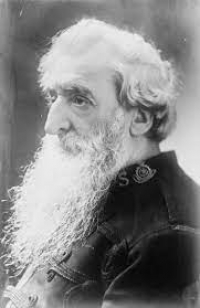
William Booth (10 April 1829 – 20 August 1912) was an English Methodist preacher who, along with his wife, Catherine, founded the Salvation Army and became its first "General" (1878–1912). The Christian movement with a quasi-military structure and government founded in 1865 has spread from London, England, to many parts of the world and is known for being one of the largest distributors of humanitarian aid. In 2002, Booth was named among the 100 Greatest Britons in a BBC poll.
Toshi Nagata

Toshi Nagata (b. 10 April 1964) is a Japanese composer and arranger.
Philippe Gaubert
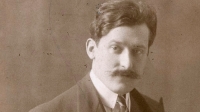
Philippe Gaubert (5 July 1879 – 8 July 1941) was a French musician who was a distinguished performer on the flute, a respected conductor, and a composer, primarily for the flute.Gaubert was born in Cahors. He became one of the most prominent French musicians between the two World Wars. After a prominent career as a flautist with the Paris Opéra, he was appointed in 1919, at the age of forty, to three positions that placed him at the very centre of French musical life:
 Sheet Music Network is a site for those who wants to access popular sheet music easily,
letting them download the sheet music for free for trial purposes.
It's completely free to download and try the listed sheet music, but you have to delete the files after 24 hours of trial.
Don't forget, if you like the piece of music you have just learned playing,
treat the artist with respect, and go buy the original sheet music.
Sheet Music Network is a site for those who wants to access popular sheet music easily,
letting them download the sheet music for free for trial purposes.
It's completely free to download and try the listed sheet music, but you have to delete the files after 24 hours of trial.
Don't forget, if you like the piece of music you have just learned playing,
treat the artist with respect, and go buy the original sheet music.
